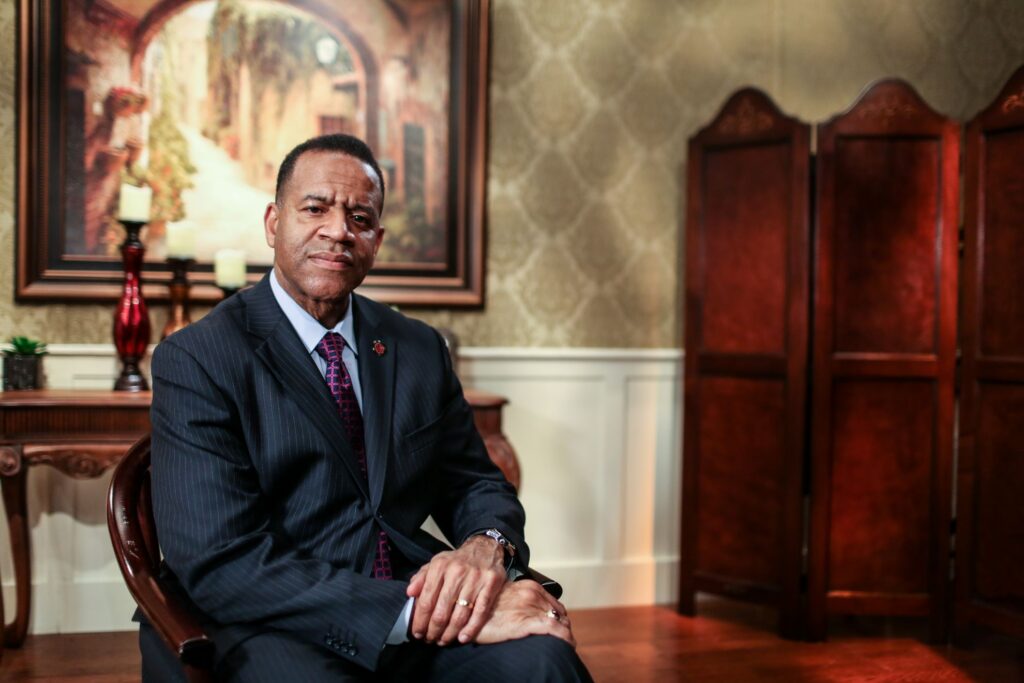
The First Amendment protects many types of free speech, including the right to support political candidates financially. But one state had limits on these donations that threatened this fundamental right.
In 2015, Alaska had some of the strictest campaign contribution laws in the United States. A group of Alaskan voters found this out the hard way when they each reached the limits of $500 while donating to various candidates and political groups.
With the help of Alliance Defending Freedom, the group filed a lawsuit against the state of Alaska challenging the draconian contribution limits that violated their right to free speech. Four years later, they found themselves in front of the U.S. Supreme Court.
What is this case about?
Campaign finance laws are supposed to ensure a fair playing field for candidates around the country. But Alaska’s laws were so strict that they put some candidates at a severe disadvantage.
In a previous contribution limit case, Randall v. Sorrell, Supreme Court Justice Stephen Breyer wrote in the plurality opinion, “contribution limits that are too low can . . . harm the electoral process by preventing challengers from mounting effective campaigns against incumbent officeholders, thereby reducing democratic accountability.”
Thompson v. Hebdon
At the time the group filed its lawsuit with ADF’s help in 2015, Alaska limited donations from an individual to a candidate for any office to $500 per year. In addition, individuals could only give up to $500 per year to any group other than a political party.
In the lawsuit, the group alleged these limits violated the First Amendment because they were so low. In fact, the contribution limits were some of the most restrictive in the country.
At the time, only Colorado, Connecticut, Kansas, Maine, and Montana had contribution limits of $500 or less per election, not per year. Even in these states, the limits only applied to candidates for lower offices, not governor or lieutenant governor.
In Alaska, the $500 restriction applied to any candidate for any office per year. This meant it was the most restrictive limit in the country for contributions to governor or lieutenant governor candidates.
Since these candidates campaign across an entire state, it stands to reason that their campaigns would cost more money than those of local candidates. This is especially true in Alaska because of its size and widely dispersed population.
Despite these facts, the U.S. District Court for the District of Alaska ruled the contribution limits of $500 per year from an individual to a candidate or group did not infringe on the freedom of speech.
On appeal, the U.S. Court of Appeals for the 9th Circuit admitted recent decisions at the U.S. Supreme Court had changed the standard for justifying contribution limits, but it relied on its old, outdated standard instead. The 9th Circuit ruled Alaska’s $500 limit did not violate the First Amendment. ADF attorneys—together with lead counsel Paul D. Clement at Kirkland & Ellis LLP and other attorneys— appealed to the Supreme Court.
The Supreme Court vacated the 9th Circuit decision and ruled the lower court had failed to properly apply precedent, and it sent the case back to the appellate court to revisit whether Alaska’s limits violated the First Amendment.
On remand, the 9th Circuit applied the precedent set by the Supreme Court and ruled Alaska’s contribution limit was unconstitutional.
Outcome
The Supreme Court ruling in favor of a group of Alaska voters means that all voters in the state will no longer have their right to free speech threatened by severe contribution limits. Individuals in Alaska can now give whatever amount of money they choose to a political candidate or group.
Case timeline
- November 2015: With ADF’s help, attorneys filed a lawsuit on behalf of a group of Alaska voters alleging the state’s limits on campaign contributions violated the First Amendment.
- November 2016: The U.S. District Court for the District of Alaska ruled the contribution limits did not violate the Constitution.
- November 2018: The U.S. Court of Appeals for the 9th Circuit affirmed the district court’s ruling.
- July 2019 : ADF attorneys, lead counsel at Kirkland & Ellis LLP, and other attorneys petitioned the U.S. Supreme Court to hear the case.
- November 2019: The Supreme Court vacated the 9th Circuit decision. It sent the case back to the circuit court and ordered it to determine whether the contribution limits were consistent with First Amendment precedent.
- July 2021: On remand, the 9th Circuit ruled the contribution limits were unconstitutional.
The bottom line
The First Amendment allows Americans to speak regarding elections by donating money to candidates or groups. The government cannot place limits on these contributions that make it exceedingly difficult for candidates to communicate with voters.




